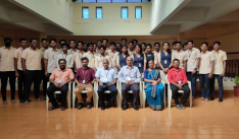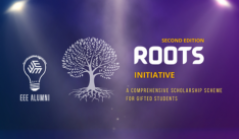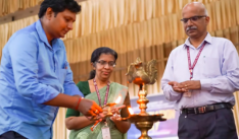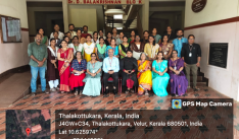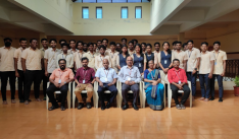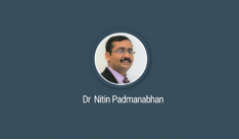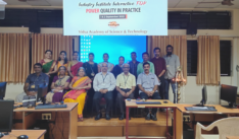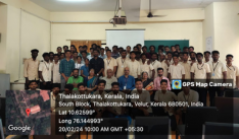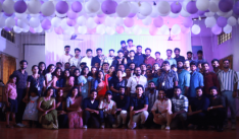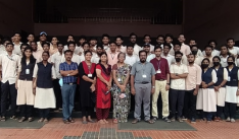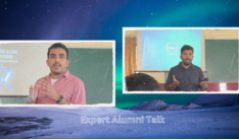Vidya Academy of Science & Technology
A unit of Vidya International Charitable Trust
Accredited by NAAC with "B++" grade
Electrical & Electronics Engineering

Phone / Email
04885287751
04885287752
eeehod@vidyaacademy.ac.in
ABOUT US
The Department offers B.Tech Program in Electrical & Electronics Engineering. The academic offering is focused on the theoretical and practical aspects of Electrical Machines, Control Systems, Power Systems, Electrical and Electronic devices & circuits, Instrumentation etc. The programme prepares students for prospective careers in Energetics, Power Generation, Transmission and Distribution and in traditional industries requiring powered machinery, power electronics, automated instrumentation controls, etc.
Vision of the Department
“Progress through Quality education in Electrical & Electronics
Engineering and to emerge as a Centre of Excellence in Education and Research for grooming the engineers as leaders of the society.”
Mission of the Department
- Provide our students strong theoretical knowledge, practical engineering skills and attitudes that will allow them to succeed as engineers and leaders.
- Create and maintain state-of-the art research environment, which provides its students and faculty with opportunities to create, interpret, apply and disseminate knowledge of electrical engineering.
- Prepare socially responsible graduates for life-long learning to meet intellectual, ethical and career challenges.
PEOs, POs & PSOs
Program Educational Objectives of the UG Electrical and Electronics Engineering(EEE) are:
PEO 1: Our graduates will have a solid foundation in mathematics, engineering sciences and Electrical & Electronics Engineering with a broad engineering core competence to formulate, analyze, and solve real life circuits, systems and installation problems.
PEO 2: Our graduates will be able to generate a curiosity for learning in breadth and depth by undertaking higher education and research.
PEO 3: Our graduates will have ability for multi-discipline teamwork, effective communication, self confidence, a high degree of personal integrity, and the belief that they can each make a difference in the society.
Program Outcomes:
Engineering Graduates will be able to:
1. Engineering knowledge: Apply the knowledge of mathematics, science, engineering fundamentals, and Electrical & Electronics Engineering specialization to the solution of complex engineering problems.
2. Problem analysis: Identify, formulate, review research literature, and analyze complex engineering problems reaching substantiated conclusions using first principles of mathematics, natural sciences, and engineering sciences.
3. Design/development of solutions: Design solutions for complex engineering problems and design system components or processes that meet the specified needs with appropriate consideration for the public health and safety, and the cultural, societal, and environmental considerations.
4. Conduct investigations of complex problems: Use research-based knowledge and research methods including design of experiments, analysis and interpretation of data, and synthesis of the information to provide valid conclusions.
5. Modern tool usage: Create, select, and apply appropriate techniques, resources, and modern engineering and IT tools including prediction and modeling to complex engineering activities with an understanding of the limitations.
6. The engineer and society: Apply reasoning informed by the contextual knowledge to assess societal, health, safety, legal and cultural issues and the consequent responsibilities relevant to the professional engineering practice.
7. Environment and sustainability: Understand the impact of the professional engineering solutions in societal and environmental contexts, and demonstrate the knowledge of, and need for sustainable development.
8. Ethics: Apply ethical principles and commit to professional ethics and responsibilities and norms of the engineering practice.
9. Individual and team work: Function effectively as an individual, and as a member or leader in diverse teams, and in multidisciplinary settings.
10. Communication: Communicate effectively on complex engineering activities with the engineering community and with society at large, such as, being able to comprehend and write effective reports and design documentation, make effective presentations, and give and receive clear instructions.
11. Project management and finance: Demonstrate knowledge and understanding of the engineering and management principles and apply these to one’s own work, as a member and leader in a team, to manage projects and in multidisciplinary environments.
12. Life-long earning: Recognize the need for, and have the preparation and ability to engage in independent and life-long learning in the broadest context of technological change.
Programme Specific Outcomes
PSO 1. Students will be able to apply the knowledge of electrical and electronics fundamentals, circuit theory, control and instrumentation to analyze, design and synthesize components and systems to meet the needs of the industry.
PSO 2. Students will be able to apply their theoretical knowledge as well as hands-on experience in power systems including renewable energy sources, power electronics, electrical machines and industrial drives for developing economically viable, socially acceptable and sustainable solutions to complex electrical engineering problems.
PSO 3. Students will be motivated for continuous self-learning in engineering practice and pursue research in trending areas of Electrical and Electronics Engineering with the help of advanced learning methodologies and online courses.
HOD
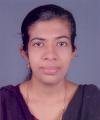
Dr. Mary P. Varghese
Ph.D, M.Tech
Professor & HoD
Ext : 160
Previous Experience :- More than 15 years of teaching experience.
Areas of Interest :- - Power System - Renewable Energy
PEOPLE

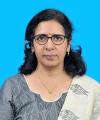

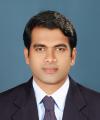
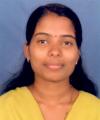
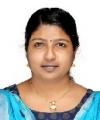
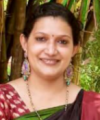
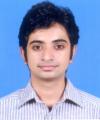
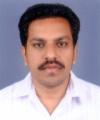
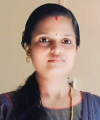
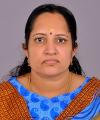
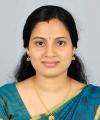
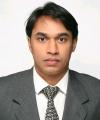

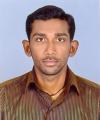
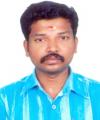
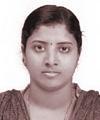
COs
SYLLABUS
B.Tech
KTU 2024 Syllabus
KTU 2019 Syllabus
KTU 2016 Syllabus
KTU 2015 Syllabus
Calicut
2014 Syllabus
2009 Syllabus
2004 Syllabus
2000 Syllabus (2K)
M.Tech
KTU
M.Tech Power Electronics (KTU 2015)
Calicut
M.Tech Power Electronics (2010 syllabus)
ACTIVITIES
INFRASTRUCTURE
Class Rooms
Five class rooms with a seating capacity of 70 each, all equipped with Projector & Green Board.
Department Seminar Room
The Electrical Department has a fully acoustically designed Seminar hall, with a seating capacity of around 60 with writing pad & Projector. Wi-Fi facility is also provided here. The Seminar hall is located in the First floor of the South Block.
Department Library
Nearly 600 books related to various disciplines are available. Both staff and students can hire books from here.
Labs
Basic Electrical Engineering/Power System Laboratory
This laboratory has an area of 1705 Sq. ft. Students will be able to verify basic theorems related to Electric Circuits, Power measurement in single phase and 3-phase circuits etc. Some of the major equipments in the lab are auto transformers, two winding transformers, Inductive Loads, dynamo type wattmeter, clip on ammeter, etc.
Electrical Measurement Laboratories
This laboratory has an area of 942.38. Sq. ft. Students will be able to understand the basic working principle of various Electrical Measuring Instruments, calibrate various Electrical Instruments, understand the concept of instrumentation via Transducers etc. Students will be able to relate between theory and actual working of measuring instruments. Some of the major equipments used are LVDT, energy meters, ammeter, voltmeter, wattmeter, vernier potentiometer, Wheastone’s Bridge, Kelvin Double bridge, Phase Shifting Transformers, Current Transformer, etc.
Electrical Machines Laboratories
This laboratory has an area of 3865.90 Sq. ft. Students will be able to perform standard tests on DC machines, transformers and understand their performance. They will be able to perform various analysis on ac and dc machines.. Some of the major equipments used are DC Shunt Motor, DC Series Motor, DC Compound Motor, DC Shunt Generator, DC Series Generator, DC Compound Generator, DC Shunt Alternator, 3 Phase Induction Motor (Slip Ring & Squirrel Cage), Single Phase Induction Motor, etc.
Advanced Electrical Engineering Laboratories
This laboratory has an area of 1582.80 Sq. ft. Students will be able to familiarise the control system concepts using hardware and simulation experiments, conduct experiments on microprocessors and microcontrollers and its interfacing & to Simulate and analyse power system networks. Some of the major equipments used are 8051 Based microcontroller Trainer Kit, DAC / ADC Interface, etc.
Simulation Laboratories
This laboratory has an area of 1582.80 Sq. ft. Students will be able to design & implement experiments using MATLAB software and its simulation. They will be able to design and implement firing circuits for power to setup some basic chopper circuits. The major software are MiPower, MATLAB, SciLab, etc.
Power Electronics Laboratories
This laboratory has an area of 1903.10 Sq. ft. Students will be able to get practical knowledge through hardware implementation of the power electronic circuits. They will be able to get detailed analysis of power electronic circuits like UJT, SCR and to get a strong foundation advanced converter techniques and their control in modern Power Electronic Systems. Students will be able to use IGBT based single phase PWM inverter,25mHz 500ms/s DSO, R, RC firing module, transistorized power supply, flash programmer, power oscilloscope, digital multimeter.
Power Electronics Simulation Laboratories
This laboratory has an area of 1903.10 Sq. ft. Students will be able to get practical knowledge on the design and implementation of power electronic circuits, to introduce MATLAB software and its simulation. The students are able to use laptops with Windows 7 & 8.1 operating system. There are about 30+ laptops in the lab. There are also other facilities like projector, printer, etc.
Analog/Digital Laboratories
This laboratory has an area of 942.38 Sq. ft. Students will be able to set up basic electronic circuits, to design and setup various electronic circuits using op-amps. They will be able to design and develop basic digital circuits be familiar with the pin configuration of 8085, to design and set up adders, counters etc. with NAND gates. The students are able to use multiplexer, demultiplexers, flip flops.
CONTACT US
Campus:
Kurumal, Thalakottukara P.O., Near Kaiparambu,
Thrissur - 680501, Kerala, India
Phone: +91-4885-287751 / 287752,
Fax: +91-4885-288366
Email: principal@vidyaacademy.ac.in
Corp. Office:
Sun Tower, East Fort,
Thrissur - 680005,
Kerala, India
Phone: +91-487-2442571 / 2442572,
Fax: +91-487-2442572
Email: vidyaict@vidyaacademy.ac.in
TAKE A SURVEY
COURSE OUTCOMES FEEDBACK FORMS
ODD SEMESTER
EVEN SEMESTER
Magazine
EEE Department Technical Magazine – SURGE
The Department of Electrical and Electronics Engineering at Vidya Academy of Science and Technology, established in 2003, has been committed to fostering academic excellence, innovation, and holistic development in the field of electrical engineering. Since its inception, the department has grown steadily in strength and stature, offering a dynamic curriculum, active research environment, and a wide range of co-curricular and extra-curricular activities aimed at shaping competent and socially responsible engineers.
In line with its vision to promote technical creativity and knowledge sharing, the department has launched its official technical magazine titled SURGE. The magazine serves as a vibrant platform to showcase the innovative projects, technical articles, achievements, and insights of students and faculty, while also highlighting the academic and cultural vibrancy of the department.
The first edition of SURGE was proudly published in January 2025, marking a significant milestone for the department. The magazine reflects the collective efforts, passion, and enthusiasm of the EEE community.
Achievements
-
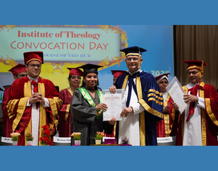 First Class Distinction in Guidance and CounselingEEE faculty member shines with First Class Distinction in Guidance and Counseling
First Class Distinction in Guidance and CounselingEEE faculty member shines with First Class Distinction in Guidance and Counseling -
 Second prize in State Level Energy Quiz CompetitionEEE students win second prize in State Level APJ Abdul Kalam Energy Quiz Competition conducted by KSEBEA
Second prize in State Level Energy Quiz CompetitionEEE students win second prize in State Level APJ Abdul Kalam Energy Quiz Competition conducted by KSEBEA -
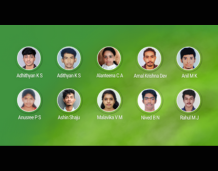
-
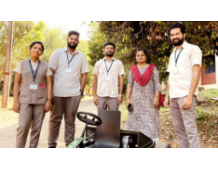 Students develop cost-effective Electric Go-KartThe newly developed "Electric go-kart", attracted lots of print and electronic media attention.
Students develop cost-effective Electric Go-KartThe newly developed "Electric go-kart", attracted lots of print and electronic media attention. -
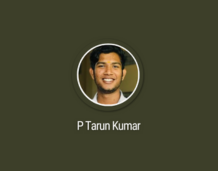 EEE Student to take part in RD Parade 2023 in DelhiParticipation in Republic Day Parade at New Delhi on 26th January is considered as a matter of great pride for any Indian citizen.
EEE Student to take part in RD Parade 2023 in DelhiParticipation in Republic Day Parade at New Delhi on 26th January is considered as a matter of great pride for any Indian citizen. -
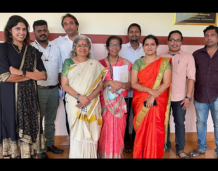 EEE Dept conducts first phase ofThe first phase interview for ROOTS scholarship was conducted on 10 August 2022 in the Board Room.
EEE Dept conducts first phase ofThe first phase interview for ROOTS scholarship was conducted on 10 August 2022 in the Board Room. -
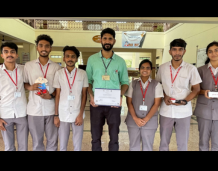 First position AAC Device Development ChallengeCenter for Assistive Technology and Innovation (CATI) - National Institute of Speech and Hearing (NISH) in association with APJ Abdul Kalam...
First position AAC Device Development ChallengeCenter for Assistive Technology and Innovation (CATI) - National Institute of Speech and Hearing (NISH) in association with APJ Abdul Kalam... -
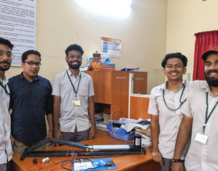 EEE Students to make an equipment physiotherapy smarterVidya students are equipped with the right talent and qualities to face the industry requirements. This is proved again when the students...
EEE Students to make an equipment physiotherapy smarterVidya students are equipped with the right talent and qualities to face the industry requirements. This is proved again when the students... -
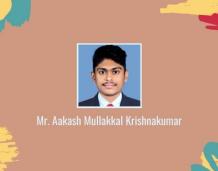 Internship at Xioami IndiaAakash Mullakkal Krishnakumar (S7 B Tech EEE) got internship as Digital Marketing Intern at Xioami India.
Internship at Xioami IndiaAakash Mullakkal Krishnakumar (S7 B Tech EEE) got internship as Digital Marketing Intern at Xioami India. -
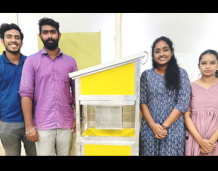 First position in IGNITE Innovation Challenge 2022Sreehari A M,B Tech (EEE) 2020 pass out batch of Vidya has been selected for the "National Level Best NSS Volunteer"
First position in IGNITE Innovation Challenge 2022Sreehari A M,B Tech (EEE) 2020 pass out batch of Vidya has been selected for the "National Level Best NSS Volunteer"
WHAT'S NEW
Information
Address
Vidya Academy of Science & Technology
Thalakottukara P.O., Kecheri, Thrissur - 680501, Kerala, India
Phone: +91 4885 287751, 287752
Fax: +91 4885 288366
E-Mail: principal@vidyaacademy.ac.in
VICT | Vidya Kilimanoor | IT Division
locate us
Affiliated to APJ Abdul Kalam Technological University & Approved by AICTE | ISO 9001 : 2015
Copyright © 2025, www.vidyaacademy.ac.in. All Rights Reserved.


